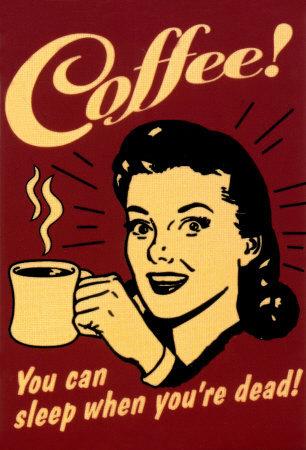Coffee gives more than a morning pick-me-up — about two cups daily could help sufferers of liver disease, according to a new joint study by Mason and Inova Health Systems.
“No one really knows how caffeine works on (fatty liver disease),” says Zobair Younossi, who led the study and is co-director of the George Mason University−Inova Health System Translational Research Institute. Perhaps there is a component in caffeine that reduces inflammation in the liver, he suggests. “Also, caffeine could have an antioxidant effect.”
Dubbed Non-Alcoholic Fatty Liver Disease (NAFLD), this type of ailment is mainly caused by fat, and not by drinking alcohol. And it’s a growing problem.
“As the rate of obesity is going up in this country, especially among children, the problems of NAFLD will continue to rise,” says Younossi, who is chairman of the Department of Medicine at Inova Fairfax Hospital as well as vice president for research for Inova Health System. “This is becoming a major cause of liver disease.”
About 25 percent of the U.S. population has fatty liver disease, he says. From that number, about 2 to 3 percent could progress to cirrhosis, which is scarring on the liver that can lead to liver cancer.
Fatty liver disease frequently comes with type 2 diabetes, says Younossi, who has researched liver disease for 16 years. Obesity and poor diet are underlying factors.
Younossi, Inova’s Maria Stepanova and Mason’s Lisa Pawloski and Aybike Birerdinc looked at four continuous cycles of the Centers for Disease and Control and Prevention’s National Health and Nutrition Examination Surveys from 2001 to 2008. Approximately 19,000 respondents were asked about 62 different dietary habits, including their intake of water, sodium, fiber, cholesterol, calcium and alcohol.
The surveys from 2007-08 revealed that 32.2 percent of American men and 35.5 percent of women are obese. If those rates continue, then 45 to 50 percent of American adults will be obese by 2025, according to the study, meaning that more than 25 million Americans could develop fatty liver disease.
Out of all the survey data about diet, only caffeine appeared to have any protective value, Younossi says.
“I was actually surprised,” says Pawloski of the “coffee effect.” “But there are other studies that support it. To me, it’s exciting that this study follows what others have done.”
Caffeine is showing some benefit for such diseases as Alzheimer’s disease, Parkinson’s disease and type 2 diabetes, says Pawloski, who is chair of the Department of Nutrition and Food Studies in Mason’s College of Health and Human Services.
“It used to be people would say they’re cutting back on caffeine,” Pawloski continues. “There is a change in the attitudes about coffee and caffeine consumption. I think this study is another piece to show that it’s not necessarily a bad thing to include in your diet.”
How Much to Consume?
How much coffee is enough is debatable, Younossi says. Don’t start drinking coffee tomorrow if you don’t already do so. “In fact, if you drink too much, you could do some harm,” he says.
There is some evidence that high caffeine intake can adversely affect bone density, Pawloski adds. Those with iron deficiency should be careful with caffeine because tannins contained in tea as well as in wine inhibit iron absorption.
Also, don’t take caffeine pills — go for the real thing, Pawloski advises. Coffee and tea contribute fluids as well as antioxidants, she says. And milk added to the drink provides beneficial calcium.
“I would encourage coffee and tea drinking, but I would not make a definite recommendation to start doing it to prevent liver disease,” Pawloski says.
And watch how many calories you pack into your caffeine perk, Pawloski adds. “Some people, like me, like to load it up with cream and sugar.”
Patients with liver disease can reverse the trajectory of the disease through diet and weight loss, Younossi says. They need to keep accurate dietary records and watch what they eat and drink, he says. Even though fatty liver disease isn’t caused by drinking alcohol, libations don’t help because processing alcohol is tough on the liver.
“Even social drinking can be harmful,” Younossi adds.
There’s no current evidence that caffeine could reverse scarring on the liver, but Younossi suspects it could have a beneficial effect. More studies are on the way, he says.
Pawloski currently is working on a study with Inova and Mason’s Department of Geography and Geoinformation Science to track the number and proximity of fast-food outlets in neighborhoods with high levels of obesity and poverty.
“This study, combined with other studies, may impact advice to people with liver disease,” Pawloski says.


